Did Moses write the Torah: Genesis, Exodus, Leviticus, Numbers & Deuteronomy?
Most Jews and Christians believe Moses received and wrote the entire Torah: five books of Genesis, Exodus, Leviticus, Numbers and Deuteronomy. In modern times, Biblical scholarship using textual criticism and other techniques has disputed this claim.The table below lists Biblical scholars and academics who dispute the "Moses' authorship" claim in favour of the JEDP Theory ('Graf-Wellhausen Hypothesis') or similar model.
| Arthur Peake | 1929 AD |
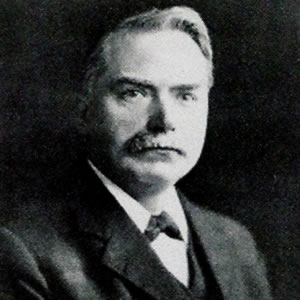
Arthur Samuel Peake (1865-1929) was an English biblical scholar, born in Leek, Staffordshire.Peake was educated at St John's College, Oxford. He was the first holder of the Rylands Chair of Biblical Criticism and Exegesis in the University of Manchester, from its establishment as an independent institution in 1904.Peake popularized modern biblical scholarship, including the new "higher criticism." He approached the Bible not as the infallible word of God, but a record of revelation written by fallible humans. |
Robertson Smith | 1894 |
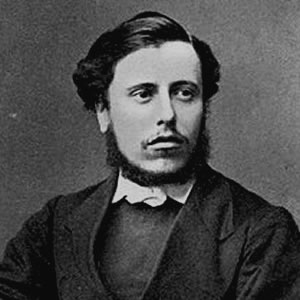
William Robertson Smith (1846-1894) was a Scottish orientalist, Old Testament scholar, professor of divinity, and minister of the Free Church of Scotland.Smith is known for his book "Religion of the Semites", which is considered a foundational text in comparative studies of religion. His criticisms include the following: |
| Abraham Kuenen | 1891 |

Abraham Kuenen (1828-1891) was a Dutch Protestant theologian, the son of an apothecary.Kuenen was born in Haarlem. He was educated at the University of Leiden. He studied theology, and won his doctor's degree by an edition of 34 chapters of Genesis from the Arabic version of the Samaritan Pentateuch. In 1853 he became professor extraordinarius of theology at Leiden, and in 1855 full professor.Kunen was known throughout Europe and America as one of the greatest scholars of the century. He shared with Wellhausen ('Graf-Wellhausen Hypothesis') acknowledged leadership in the field of Old Testament criticism. 2 |
| Eduard Reuss | 1891 |

Eduard Reuss (1804-1891) was a Protestant theologian.From 1829 to 1834 he taught Biblical criticism and Oriental languages at the Strasbourg Theological School. In 1864, he became Professor of Old Testament.Reuss turned his attention to Old Testament criticism. His critical position was to some extent that of K. H. Graf and Julius Wellhausen. He was in a sense their forerunner, and was actually for a time Graf's teacher. |
| Julius Wellhausen | 1883 |

Julius Wellhausen (1844-1918) was a German biblical scholar and orientalist.In 1883, Julius Wellhausen published his JEDP Theory ('Graf-Wellhausen Hypothesis'). Wellhausen's work proved very influential. He was able to correlate the development of the Torah with Israelite and Jewish history.Wellhausen's theory held the Torah was not a unified work from a single author (Moses) but instead was made up of multiple, independent texts written over many centuries by many different writers. Wellhausen set the chronological order of the independent sources as J, E, D and P with reference to the evolving religious history of Israel, which he saw as one of ever-increasing priestly power. |
| Wilhelm Vatke | 1882 |
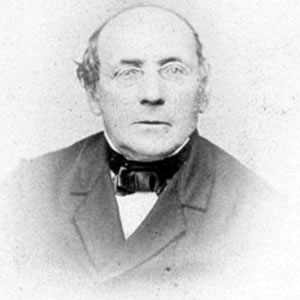
Wilhelm Vatke (1806-1882) was German Protestant theologian.He was appointed in 1837 professor extraordinarius. He was one of the founders of the newer Hexateuch criticism.Vatke issued his book, "Die Religion des Alten Testaments", which contained the seeds of a revolution for the Old Testament. In future, Vatke's ideas were associated with progressive Torah studies by the names of Abraham Kuenen and Julius Wellhausen. |
| Karl Heinrich Graf | 1869 |
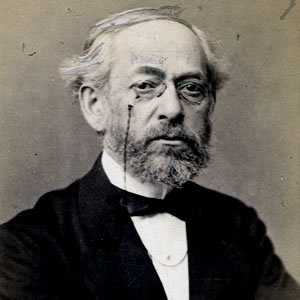
Karl Heinrich Graf (1815-1869) was a German Old Testament scholar and orientalist.He studied Biblical exegesis and oriental languages at the University of Strassburg under Édouard Reuss, and, after holding various teaching posts, was made instructor in French and Hebrew at the Landesschule of Meissen, receiving in 1852 the title of professor.Graf was one of the chief founders of Old Testament criticism. Graf taught the Torah we currently possess was largely the product of the weaving together of four independent texts: Jehovist, Elohist, Deuteronomy and Priestly ("JEDP Theory"). These different documents developed at different times during the history of Israel, and were eventually brought together to form our current Torah. 5 |
| Hermann Hupfeld | 1853 |
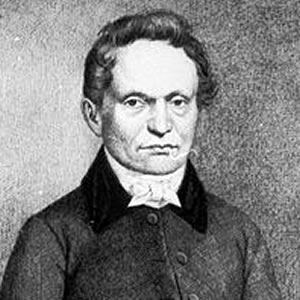
Hermann Hupfeld (1796-1866) was a Protestant German Orientalist and Biblical commentator.He is known for his historical-critical studies of the Old Testament. He was born at Marburg, where he studied philosophy and theology from 1813 to 1817. In 1825, Hupfeld was appointed extraordinary professor of theology at Marburg. There he received professorships of theology and Oriental languages.In 1853, Hupfeld on the JEDP Theory ("Gaff-Wellhausen"), suggested Elohist (E) was really two sources and should be split, thus isolating the Priestly (P) source. Hupfeld also emphasized the importance of the Redactor, or final editor, in producing the Torah from the four JEDP sources. |
| Heinrich Ewald | 1823 |
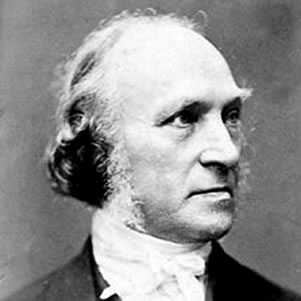
Heinrich Ewald (1803-1875) was a German orientalist, Protestant theologian, and Biblical exegete.He studied at the University of Göttingen. In 1827 he became extraordinary professor there, in 1831 ordinary professor of theology, and in 1835 professor of oriental languages.Ewald maintained the Elohistic (E) source was basic for the composition of the Torah. He suggested this work had been supplemented by the addition of older sections such as the Decalogue (D). Finally, a compilation of sources (Jehovistic or J) were placed in the basic Elohistic (E) document. In essence, Ewald was suggesting that at different periods, the [Torah] books underwent a revision each time new additions were incorporated. 6 |
| Friedrich Bleek | 1822 |
Friedrich Bleek (1793-1859) was a German Biblical scholar.In 1822, he identified Joshua as a continuation of the Torah via Deuteronomy. Others had identified signs of the Deuteronomist in Judges, Samuel and Kings. |
| Wilhelm de Wette | 1805 |
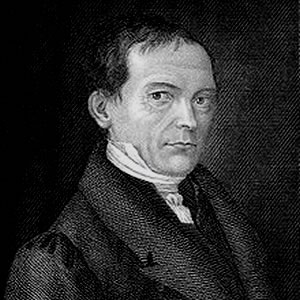
Wilhelm de Wette (1780-1849) was a German theologian and biblical scholar.In 1805, De Wette concluded that Deuteronomy represented a third independent source. Also,the Torah was composed after the time of David.In general, the Torah we possess was largely the product of weaving together four independent texts: Jehovist, Elohist, Deuteronomy and Priestly (JEDP Theory). These different documents developed at different times during the history of Israel, and were eventually brought together to form our current Torah. 5 |
| Alexander Geddes | 1800 |
Alexander Geddes (1737-1802) was a Scottish theologian and scholar.His translation of the "Satires of Horace" made him known as a scholar, but his liberalism led to his suspension.Geddes postulated that the Torah was put together in Solomon's era (990-931 BCE) from a number of fragments, some of which existed before the time of Moses. |
| Johann Gottfried Eichhorn | 1780 |
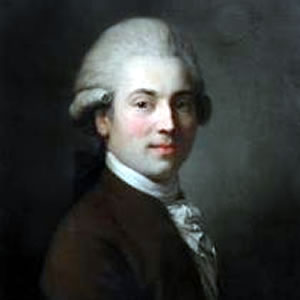
Johann Gottfried Eichhorn (1752-1827) was a German Protestant theologian of the Enlightenment and an early orientalist.In 1775 he was made professor of Oriental languages at the Faculty of Theology at Jena University. During his professorship in Jena he wrote his seminal Introduction to the Old Testament, a breakthrough in the historical understanding of the Torah.Eichhorn has been called "the founder of modern Old Testament criticism." In 1823, Eichhorn concluded that "most of the writings of the Hebrews passed through several hands." Eichhorn regarded many books of the Old Testament as fictitous and fake. Moses had had no part in writing any of it. |
| Jean Astruc | 1766 |
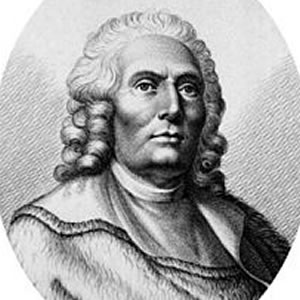
Jean Astruc (1684-1766) was a professor of medicine at Montpellier and Paris.He wrote the first great treatise on syphilis and venereal diseases. He played a fundamental part in the origins of critical textual analysis of works of scripture.Astruc was the founding father of biblical criticism. He used the pattern of divine names YHWH and Elohim in Genesis and Exodus, to explain the contradictory Biblical accounts. Astruc suggested Moses wrote Genesis based on two different sources, the Yahwist (J) and Elohist (E) traditions, known as Documentary Hypothesis (DH). |
| Campegius Vitringa | 1689 |
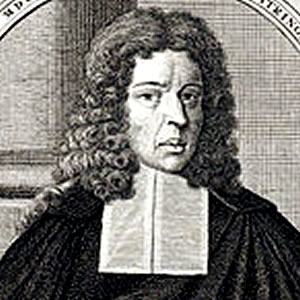
Campegius Vitringa (1659-1722) was a Dutch Protestant theologian and Hebraist.Vitringa, a follower of Johannes Cocceius, was a supporter of prophetic theology. He was educated at the universities of Franeker and Leiden, and became professor of Oriental languages in 1681.Vitringa in his work entitled "Observationes Sacrae" suggested that Moses had access to ancient sources from the patriarchal period (1813-1506 BCE). |
| John Hampden | 1688 |
John Hampden was a 17th century English scholar.Hampden affirmed affirmed Richard Simon's views, that Moses could not be the author of much of the [Torah] writings attributed to him. |
| Richard Simon | 1678 |
Richard Simon (1638-1712) was a French priest, a member of the Oratorians.He was an influential biblical critic, orientalist and controversialist. Simon was influenced by the ideas of Isaac La Peyrère who came to live with the Oratorians, and by Baruch Spinoza.Unlike the arguments made by previous men, Simon was the first prominent Christian leader who denied Mosaic authorship, creating conflict between him and both Catholics and Protestants alike. Simon declared that Moses could not be the author of much of the [Torah] writings attributed to him. |
| Isaac de la Peyrère | 1676 |
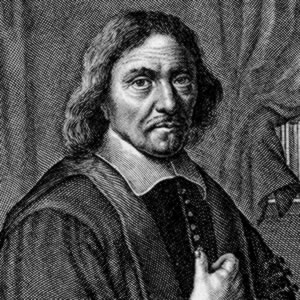
Isaac La Peyrère (1596-1676) was a French theologian, Bible critic and anthropologist.La Peyrère was a lawyer by training and a Calvinist by upbringing, though he later converted to Catholicism.Peyrere wrote the "Praeadamitae" book which was banned and burned everywhere for various heretical claims, including Moses did not write the Torah, and that no accurate copy of the Bible exists. 3 |
| Jean Morin | 1659 |
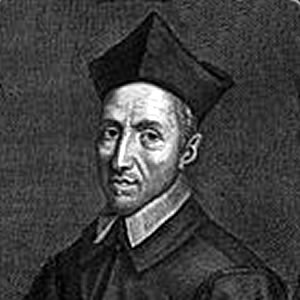
Jean Morin (1591-1659) or 'Joannes Morinus' was a French theologian and biblical scholar.He invigorated discussions with a traditional-critical thesis that doubted the integritas of the Old Testament.In Morin's view, the Hebrew text of the Old Testament was certainly not deliberately falsified, nevertheless, due to the careless work of copyists it was garbled to such an extent that it does not represent an authentic basis. 4 |
| Louis Cappel | 1658 |
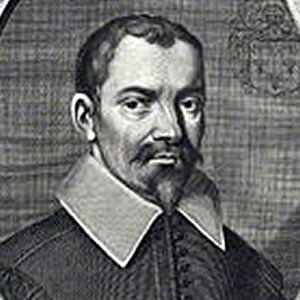
Louis Cappel (1585-1658) was a French Protestant churchman and scholar.He studied theology at the Academy of Sedan and the Academy of Saumur, and Arabic at the University of Oxford. At the age of twenty-eight he accepted the chair of Hebrew at Saumur, and twenty years later was appointed professor of theology.Cappel's second important work, "Critica sacra", went further, and was controversial from a theological point of view. Based on the various readings in text and differences between the ancient versions and Masoretic text, the consonantal text of the Hebrew Bible was susceptible to change, corruption, and human interference, which amounted to an attack on the verbal inspiration of Scripture. |
| Baruch Spinoza | 1656 |
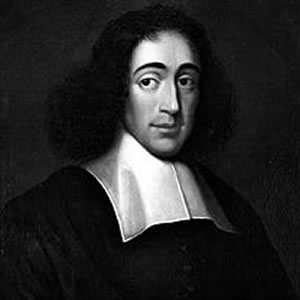
Baruch Spinoza (1632-1677) was a Jewish-Dutch philosopher of Portuguese Sephardi origin.Spinoza was raised in a Portuguese-Jewish community in Amsterdam. He developed highly controversial ideas regarding the authenticity of the Hebrew Bible and the nature of the Divine. By laying the groundwork for the Enlightenment and modern biblical criticism. He was considered one of the great rationalists of 17th-century philosophy.Spinoza's break with the prevailing dogmas of Judaism, and particularly his insistence on non-Mosaic authorship of the Torah, was not sudden; rather, he wrote of a lengthy internal struggle, "Indeed, I may add that I write nothing here that is not the fruit of lengthy reflection". Spinoza's analysis had a lasting impact on biblical criticism and laid the foundations for authorship theories to come. |
| Thomas Hobbes | 1651 |

Thomas Hobbes (1588-1679) was an English philosopher who is considered one of the founders of modern political philosophy.In addition to political philosophy, Hobbes also contributed to a diverse array of other fields, including history, jurisprudence, geometry, the physics of gases, theology, ethics and general philosophy.In his major work "Leviathan", Hobbes writes, "It is therefore sufficiently evident that the five Books of Moses were written after his time, though how long after it be not so manifest" (pg. 173). Nonetheless, Hobbes still argues that Moses wrote the parts concerning the law itself. |
| Alfonso Salmeron | 1585 |
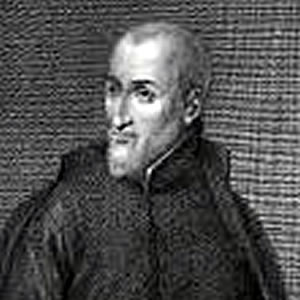
Alfonso Salmeron (1515-1585) was a Spanish biblical scholar, a Catholic priest.He was one of the first Jesuits. He studied literature and philosophy at Alcalá and then philosophy and theology at the Sorbonne in Paris. The Jesuit tradition of biblical criticism starting with Alfonso Salmeron had paved the way for his approach. |
| Abraham Ibn Ezra | 1167 |
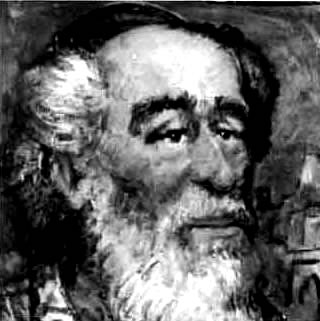
Abraham Ibn Ezra (1089-1167) was one of the most distinguished Jewish biblical commentators and philosophers of the Middle Ages.He was a proponent of the higher biblical criticism of the Torah as one of its earliest pioneers.Spinoza concluded that Ibn Ezra's hints about "the truth" throughout his commentary as "a clear indication it was not Moses who wrote the Torah but someone else who lived long after him, and it was a different book that Moses wrote" as sufficient evidence for Non-Mosaic authorship. Despite his affirmation of Mosaic authorship for the vast majority of the Torah, many scholars refer to Ibn Ezra as the "father of modern biblical criticism". 7 |
In Islam, Moses received the 'Oral' Torah
Islam teaches that Moses received the Torah from God. This was an 'oral transmission' from God through the Angel Gabrial to Moses. Today, the Torah is presented in a written book format. This is a corrupted version of the original Oral Torah. The JEDP Theory (or "Graf-Wellhausen Hypothesis") supports the Islamic position on Biblical corruption.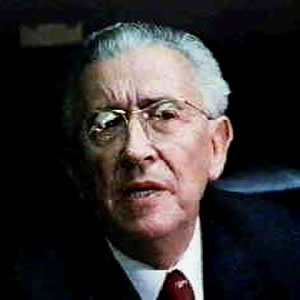
Maurice Bucaille (d. 1998), a Muslim scholar supported Documentary Hypothesis (DH)
Maurice Bucaille (1920-1998), a French medical doctor, author, convert and scholar of Islam. Bucaille writes the Old Testament has been distorted due to the numerous translations and corrections, as it was transmitted orally. Bucaille argued for biblical criticism, including the Documentary Hypothesis (DH) and JEDP Theory. Bucaille on Documentary HypothesisCREDIT
1https://thetorah.com/yhwh-the-god-that-is-vs-the-god-that-becomes/
2 The Jewish Quarterly Review Vol. 4, No. 4 (July 1892), pp. 571
3 https://www.jewishvirtuallibrary.org/la-peyr-x00e8-re-isaac
4 p.749 Hebrew Bible / Old Testament: The History of Its Interpretation: II: From the Renaissance to the Enlightenment. Magne Saebo
5 p.87 Three Perspectives: Jewish, Christian, and Muslim. Steven H. Propp
6 Ewald, The Composition of Genesis Critically Examined
7 Encyclopedia Judaica, "ibn Ezra"
https://otterdoxy.wordpress.com/2015/10/16/jedp-and-stuff-before-wellhausen/
| 17064 views · 4 mins ago | Author: Guest • Updated: 11 Jun 2019 |
ALL ARTICLES ARE INTENDED FOR GENERAL EDUCATIONAL PURPOSES ONLY. ALL INFORMATION IS BELIEVED TO BE CORRECT, ACCURATE AND TRUTHFUL. YOU ARE ADVISED TO DO YOUR OWN RESEARCH. ARTICLES ARE LIVE DOCUMENTS AND MAY BE UPDATED WITH NEW CONTENT AT ANY TIME. WHERE AVAILABLE, SOURCES AND REFERENCES ARE CREDITED. IF YOU SPOT ANY ERRORS, OMISSIONS OR GIVE FEEDBACK KINDLY CONTACT US WITH DETAILS
142-jedp-torah-authors
3 Videos with 'Wellhausen'
News on 'Torah'
Search Results for 2 news items
Displayed in Date Order (most recent first)
Rabbis believe Trump will fulfil Torah prophecies, says ex-minister
| MEMO
25 Jan 2017 |
1693 views ·
6 days ago
Carbon Dating Confirms World's Oldest Complete Torah Scroll dated to 1190 AD, or 800-years ago
| National Geographic
31 May 2013 |
1409 views ·
6 days ago
Articles
All Articles (154)
10 Commandments - Bible vs Quran
29979 views
· 24 mins ago
10 Commandments - Christian vs Muslim
21445 views
· 10 mins ago
10 Red Heifers (Cows)
23124 views
· 9 mins ago
5 reasons Abraham sacrificed Ishmael
19676 views
· 4 mins ago
Abrahamic Religions
24505 views
· 2 mins ago
Angels - 41 Angels from the Abrahamic Religions
26837 views
· 8 mins ago
Are you a Muslim?
49086 views
· 11 mins ago
Arius vs Bishop Athanasius
23516 views
· 6 mins ago
Bible - 12% of New Testament copied from Old Testament
13677 views
· 10 mins ago
Bible - 18 Ego Eimi (I AM) statements, like John 8:58
23135 views
· 2 mins ago
Bible - 27 Verses on Yahweh, Elohim(s) and The Gods
25270 views
· 9 mins ago
Bible - 400 NT Jesus Prophecies copied from OT
15383 views
· 23 mins ago
Bible - 75 Verses on drinking Wine & Alcohol
23464 views
· 23 mins ago
Bible - Exodus 3:14 Translations
18786 views
· 7 mins ago
Bible - King James (KJV) & 37 'Disputed' Verses
16351 views
· 6 mins ago
Bible - Lost Books of the Bible
16999 views
· 8 mins ago
Bible - Mark 16:9-20 Text Analysis
17658 views
· 12 mins ago
Bible - Matthew 28:19: Greek vs Hebrew
25211 views
· 10 mins ago
Bible - Pagan Texts in the Bible
16805 views
· 23 mins ago
Bible - Revelation, A Forgery
17989 views
· 9 mins ago
Bible - Scholars on John's Gospel
17654 views
· 4 mins ago
Bible - The Synoptic Problem
17183 views
· 41 mins ago
Bible - Violence & Killings
15191 views
· 2 mins ago
Bible Authors: Who Wrote It?
17919 views
· 9 mins ago
Bible Errors - 672 Variants
16273 views
· 3 mins ago
Bible History - KJV vs NIV
17966 views
· 11 mins ago
Bible NT - 55% of New Testament Papyrus contain under 3% of Biblical Text
15552 views
· 2 mins ago
Bible NT - Codex Sinaiticus exposes 312 year gap since Jesus crucifixion
16664 views
· 4 mins ago
Bible NT Canons - Church Fathers, Councils & Apocrypha
14602 views
· 3 mins ago
Bible OT - Dead Sea Scrolls expose a 1303 year gap since Moses life
14872 views
· 9 mins ago
Bible OT Canons - Church Fathers, Councils & Apocrypha
15060 views
· 2 mins ago
Bible Verses - KJV vs NIV
18425 views
· 11 mins ago
Blasphemy Laws in 35 Christian Countries
15354 views
· 10 mins ago
Book Burnings in Roman, Catholic and Protestant society
19632 views
· 4 mins ago
Catholic vs Protestant - Bible
16113 views
· 21 mins ago
Catholic vs Protestant - Christianity
17543 views
· 10 mins ago
Child Abuse & Grooming Gangs (UK)
13376 views
· 13 mins ago
Child Abuse, Sexual Crimes & Prison Figures (UK)
18055 views
· 2 mins ago
Child Marriage - Muhammad married 9-year old Aisha
26115 views
· 12 mins ago
Christian Heresies
16321 views
· 3 mins ago
Christian: 28 Heretical Sects
17990 views
· 2 mins ago
Christian: 32 Church Denominations
14160 views
· 12 mins ago
Christianity: Founded by Paul on Road to Damascus, Syria
14981 views
· 23 mins ago
Church Councils
15684 views
· 3 mins ago
Church Fathers - Quotes from 18 Men of God
17109 views
· 12 mins ago
Church Fathers on Jesus Divinity
17428 views
· 3 mins ago
Codex Sinaiticus & Vaticanus - Corruption in the KJV Bible books
23032 views
· 23 mins ago
Codex Sinaiticus & Vaticanus - Corruption in the KJV Bible verses
20698 views
· 11 mins ago
Constantine and Christianity
20403 views
· 16 mins ago
Constantine, Nicaea and History
17316 views
· 12 mins ago
Council of Nicaea 325 AD
18041 views
· 2 mins ago
COVID deaths vs Other Causes
11639 views
· 31 mins ago
COVID: 7 Medical Studies on why Face Masks fail
12141 views
· 3 mins ago
COVID: Lockdowns & Contact Tracing in 78 Countries
14987 views
· 8 mins ago
COVID: Monthly UK deaths compared over 5 Years (2015-20)
11416 views
· 2 mins ago
COVID: Weekly UK deaths compared over 5-Years (2015-20)
11058 views
· 10 mins ago
Did Jesus pray to God or Allah?
25423 views
· 9 mins ago
God (Allah) - His Names & Attributes
19105 views
· 10 mins ago
God vs Allah
18020 views
· 2 mins ago
God, Evidence For
13811 views
· 10 mins ago
Gods & Roman Emperors
14383 views
· 10 mins ago
Gods - 6 Dying & Rising Mythical Gods
20372 views
· 6 mins ago
Gods - 60 Pagan deities in the Bible
35013 views
· 3 mins ago
How do Muslims pray?
20132 views
· 7 mins ago
Ishmael and Isaac in Bible and Quran
23319 views
· 9 mins ago
Islam: Biggest Threat to Europe?
13256 views
· 6 mins ago
Islamic Countries. Who are they?
14453 views
· 42 mins ago
Jesus - 91% chance he was a fictitous Mythical-Hero (Raglan Scale)
15382 views
· 9 mins ago
Jesus - 17 'Crucified' Savior Gods
14611 views
· 16 mins ago
Jesus - Crucifixion in the Gospels
16705 views
· 12 mins ago
Jesus - Crucifixion Timing
15739 views
· 2 mins ago
Jesus - God of 99 Faces
21332 views
· 21 mins ago
Jesus - God with No Face
14569 views
· 14 mins ago
Jesus - Resurrection in the Gospels
15767 views
· 2 mins ago
Jesus - Resurrection Theories
15494 views
· 3 mins ago
Jesus - Sons of God
18785 views
· 7 mins ago
Jesus and the 12 Disciples
21088 views
· 2 mins ago
Jesus in the Quran
17393 views
· 40 secs ago
Jesus on the Cross or Tree?
17785 views
· 10 mins ago
Jesus the God
19525 views
· 42 mins ago
Jesus the Jewish Prophet
17802 views
· 4 mins ago
Jesus the Muslim
16743 views
· 13 mins ago
Jesus the Son of God
14219 views
· 8 mins ago
Jesus the Sun-God over 12 Zodiac Star Gods
32897 views
· 28 mins ago
Jesus vs Isaac - The Sacrifice
19977 views
· 17 mins ago
Jesus vs Jonah & Whale
17611 views
· 3 secs ago
Jesus vs Krishna
23607 views
· 5 mins ago
Jesus vs Paul
19138 views
· 10 mins ago
Jesus vs Romulus - 50 Reasons both are Mythical Gods
19829 views
· 2 mins ago
Jesus vs Zeus
38489 views
· 34 mins ago
Jesus was 30, 40 or 50 years old?
20666 views
· 11 mins ago
Jesus, 12 Disciples and Paul Interview
17518 views
· 2 hrs ago
Jesus, from Iesous and Yeshua
19689 views
· 12 mins ago
Jesus, Serapis & 7 Pagan Gods
36061 views
· 9 mins ago
Jewish Laws & Rituals
15031 views
· 2 mins ago
Judaism - Maimonides 13 Principles of Jewish Belief
16912 views
· 10 mins ago
Mark, Matthew, Luke and John
20781 views
· 11 mins ago
Messiah - His Aims & Objectives
14886 views
· 5 secs ago
Messiah - Jesus?
14874 views
· 17 mins ago
Monotheism vs Polytheism
15178 views
· 23 mins ago
Muhammad - Most Influential Man in History
17319 views
· 13 mins ago
Muhammad in Bible: He is is altogether lovely - Song 5:16
24846 views
· 6 mins ago
Muhammad in Bible: Kedar rejoice and Sela sing - Isaiah 41/42
29129 views
· 10 mins ago
Muhammad in Bible: Prophet like unto Moses - Deuteronomy 18:18
28568 views
· 11 mins ago
Muhammad in Bible: Select Verses
19541 views
· 25 mins ago
New Age - Alice Bailey's 10 Point Charter
27033 views
· 5 mins ago
Nicene Creed - Council of Nicaea 325 AD
17825 views
· 10 mins ago
Nicene Creed - Foundation of Christianity
14982 views
· 7 secs ago
Noahide Laws
17526 views
· 3 mins ago
Palestine and Creation of Israel in 1948
21483 views
· 3 mins ago
Paul - 50% of his Writings are Inauthentic Forgeries
15391 views
· 7 secs ago
Paul copied 152 Old Testament verses
13636 views
· 11 secs ago
Paul vs James
16971 views
· 13 mins ago
Prophets - Sinful Beings in the OT Bible
14194 views
· 18 mins ago
Prophets of God
58755 views
· 10 mins ago
Prophets were Sinners?
28725 views
· 31 mins ago
Purpose of Life
15126 views
· 4 mins ago
Quran - 5 Recitations: Hafs, Warsh, Hisham, Qalun & Al-Duri
25600 views
· 27 mins ago
Quran - A Mathematical Miracle
26101 views
· 2 mins ago
Quran - Chapter & Verse Miracle
15405 views
· 11 mins ago
Quran - Comparing Hafs & Warsh for 51 textual variants
70966 views
· 4 mins ago
Quran and Violence
17687 views
· 33 mins ago
Quran refers to Torah & Gospel
24368 views
· 2 mins ago
Quran vs Science
16655 views
· 3 mins ago
Roman Calendar
18107 views
· 9 mins ago
Roman Emperors in Bible
13068 views
· 25 mins ago
Rome, Caesar & Emperors in the Bible
15473 views
· 3 mins ago
Sin Atonement: Jesus Blood vs 21 Offerings
7704 views
· 10 mins ago
Terrorism, the Risk to Americans
12374 views
· 8 hrs ago
The Lost Gospels
19749 views
· 57 mins ago
The Prophets Prayer
17751 views
· 14 mins ago
Timeline of Bible
15024 views
· 16 mins ago
Timeline of Church Councils
17139 views
· 9 mins ago
Timeline of Muhammad
15742 views
· 4 mins ago
Timeline of New Testament Bible
16237 views
· 2 mins ago
Timeline of Old Testament Bible
19156 views
· 2 mins ago
Timeline of Prophets
43858 views
· 1 min ago
Timeline of Quran
26219 views
· 9 mins ago
Timeline of Roman Empire
15666 views
· 24 mins ago
Timeline of Trinity
15919 views
· 11 mins ago
Torah - Did Moses Write It?
17064 views
· 4 mins ago
Torah - Wellhausen/JEDP Theory
17847 views
· 4 mins ago
Trinity - 13 Three God Pagan concepts
18337 views
· 15 mins ago
Trinity - 27 Attributes of the Father, Son and Holy Ghost
22204 views
· 8 mins ago
Trinity - 4 Creeds: Apostles, Nicene, Athanasian to Chalcedon over 418 years
18669 views
· 4 mins ago
Trinity - Different Views
17359 views
· 5 secs ago
Trinity - Three Are One
16550 views
· 3 mins ago
Trinity in the Bible
14273 views
· 8 mins ago
UN Agenda 21/2030: 17 Sustainable Goals of the New World Order
15534 views
· 4 mins ago
War - 46 Major Conflicts ranked by Religion
17315 views
· 10 mins ago
War - 67 Bloody Christian Conflicts
14648 views
· 22 mins ago
War - From Yinon, 9/11 to Springs, Invasions, ISIS & 6M Dead
17251 views
· 15 mins ago
What does LGBTQ+ mean?
14372 views
· 12 mins ago
Women in Religion
16836 views
· 9 mins ago














